News
12 steps to being an eco diver
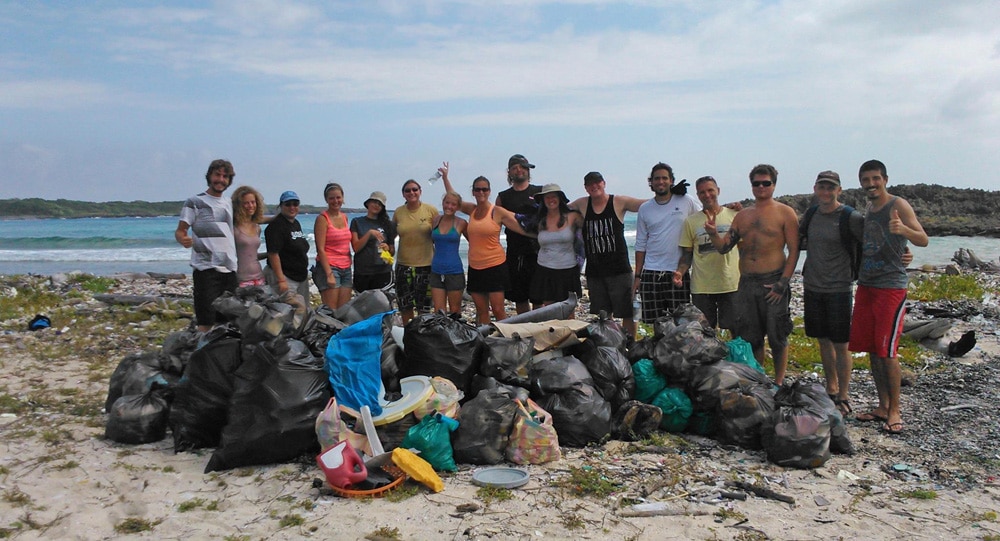
For most divers, I think we feel pretty privileged to get to see and enjoy the amazing underwater world. As the plight of our oceans and coral reefs becomes more prominent in the news and on social media, often divers find ourselves probably a bit more aware of the value of the life beneath the waves and the issues affecting it. Therefore, it can be quite distressing when we learn that not all of the negative impacts on coral reefs are from large scale human impacts like climate change and overfishing, but that in some areas, lots of damage comes directly from divers and diving tourism, particularly in those areas that experience a high density of divers year round.
So, how do we divers, who love our sport and the underwater world, overcome the negative impacts and turn our actions into positives?
Here’s a list of 12 easy things we can do to minimise our impact:
1. Be choosy about your dive centre
There are lots of dive centres out there going above and beyond to be green, teaching and supporting good dive practices and minimise their environmental impact. A little research before hand and you can find centres that give marine biology talks, do beach cleans and work on an environmentally-friendly basis. Generally I find I have a better time and get more from holidays like this. The Green Fins website is pretty helpful.
2. Buoyancy
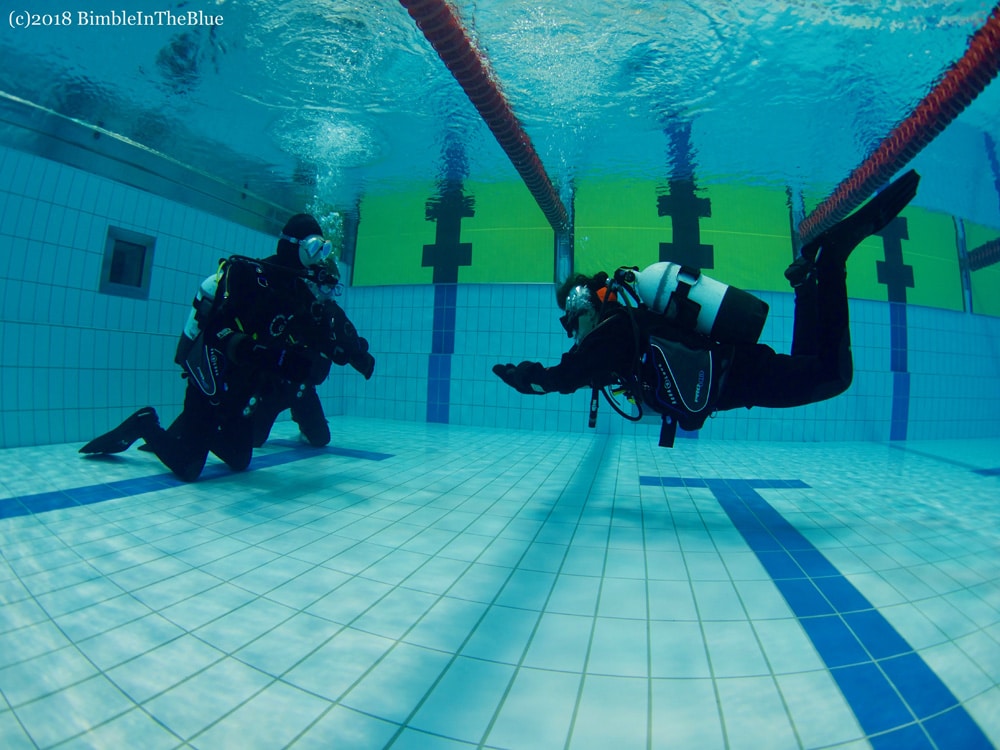
Buoyancy is massively important for both enjoying the dive, improving air consumption and also not trashing the environment you are diving in. Practice makes perfect, so you are never too good to try and improve; skills get rusty after a break even for experienced divers. There are lots of places offering courses specifically designed to improve buoyancy, so it’s a great excuse for more diving!
3. Do not touch anything
There may be an odd occasion you need to hold onto a rock if you’ve just run into a strong current or use a finger to stabilise yourself for a moment in an emergency. If you can pick a bit of rock without growth or a bit of dead coral to hold onto, this is best.
However if you are regularly holding onto stuff or bouncing off the bottom, then it’s time to go back to basics and get your buoyancy under control. If not for the sake of the environment, but yourself, particularly when you realise you just grabbed hold of a stonefish…
4. Reef safe sun screen
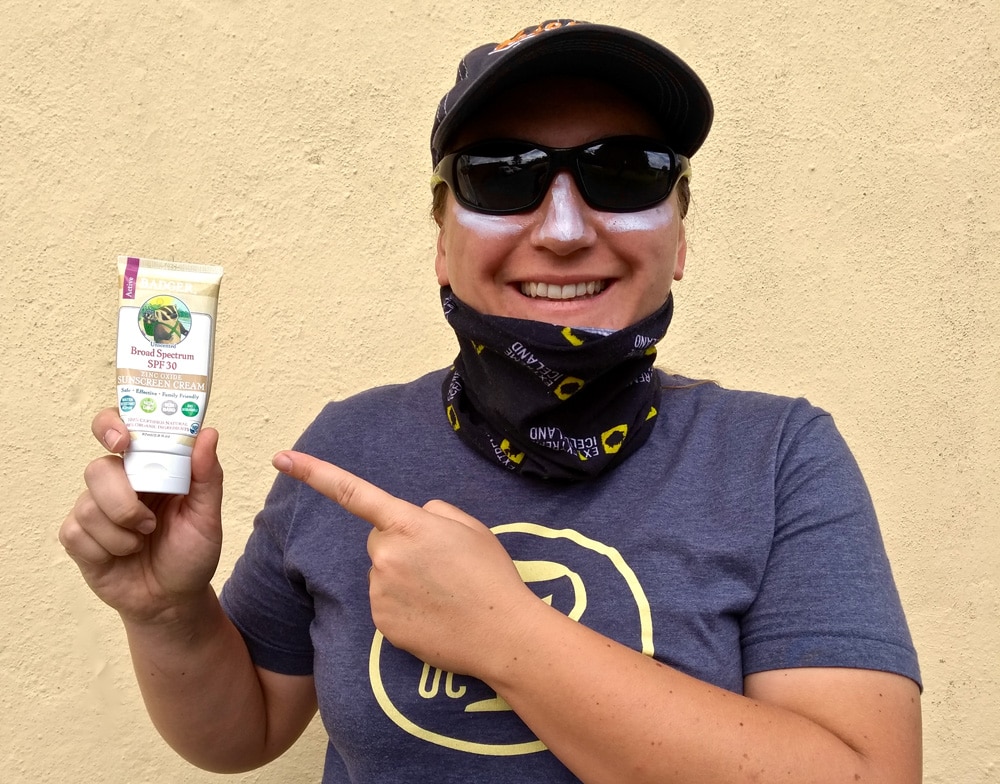
On a tropical dive holiday, chances are you will be using sunscreen to avoid sunburn and the associated health risks and pain that come with it. Many sunscreens contain oxybenzone, which is very bad news for reefs, as it kills coral. Since we know we will be in the water and some of the sunscreen will be washed off, by using a reef safe sunscreen, we ensure our diving activity doesn’t pollute the water for the corals we are there to see! For a list of Reef Safe Sunscreens click here! You could even forego the sunscreen entirely and wear a sun hat and UV-protective clothing instead.
5. Reusable water bottle
Keeping hydrated is a must in diving as hydrated divers are less likely to get the bends or suffer heat related issues in hot climates. By using a reusable water bottle, you can reduce the amount of single-use plastic entering the environment. Having your dive centre refill your own bottle it also often works our cheaper than buying bottled water from the shops.
6. Do not tip bad guiding
If your dive guide moved that frogfish/seahorse for you to get a photo, ask them not to touch or move anything. A photo is never worth killing something by stressing it out. If they guided you deeper than the original dive plan to show you something, or deeper than you are qualified/ comfortable going, ask to stick to the dive plan next time. Plan the dive, dive the plan. Ultimately you are responsible for your dive and your safety. Guides do what they think will make customers happy because happy divers tip. If your guide is acting like a cowboy, it’s probably because previous divers have rewarded this behaviour.
7. If you are a photographer, remember your surroundings
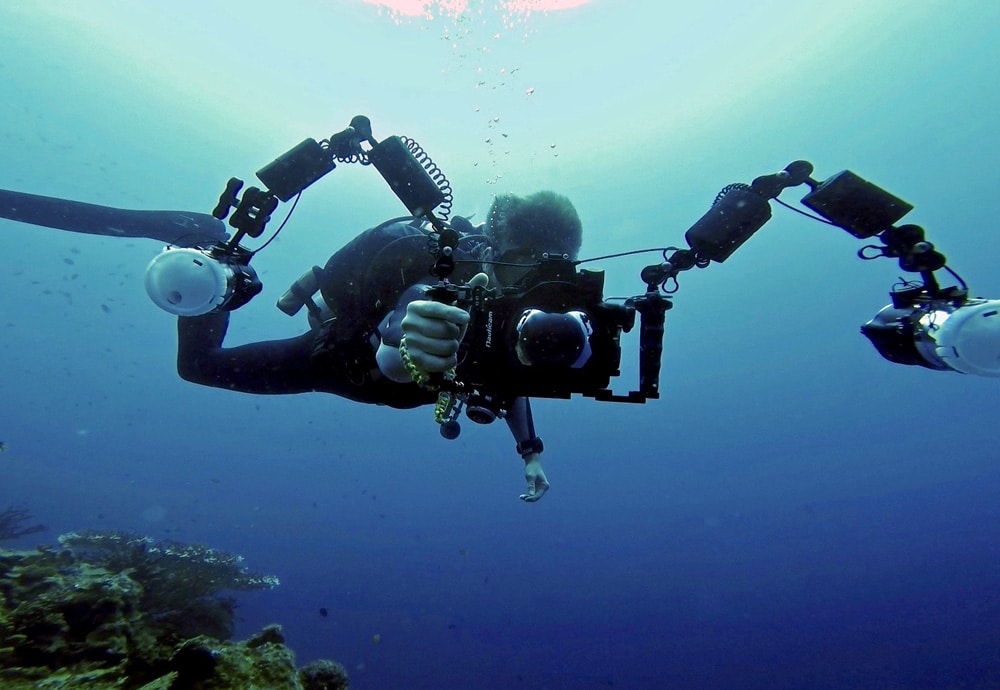
Never move anything, try not to touch coral or lie on the bottom. If you need to hold onto something to get your photo, then it’s back to work on your buoyancy before going in the water with a camera! Often taking a few well planned shots is best. Many creatures, such as seahorses are sensitive to light, so taking a few good photos and moving on ensures they are not permanently blinded by multiple strobe flashes. Also spare a thought for others in the dive group, by sharing the view of a nice critter, it reduces the likelihood of lots of divers crowding one spot and inevitably someone kicking something, causing damage and kicking up sand and silt.
8. Use spit, rather than washing up liquid or shampoo
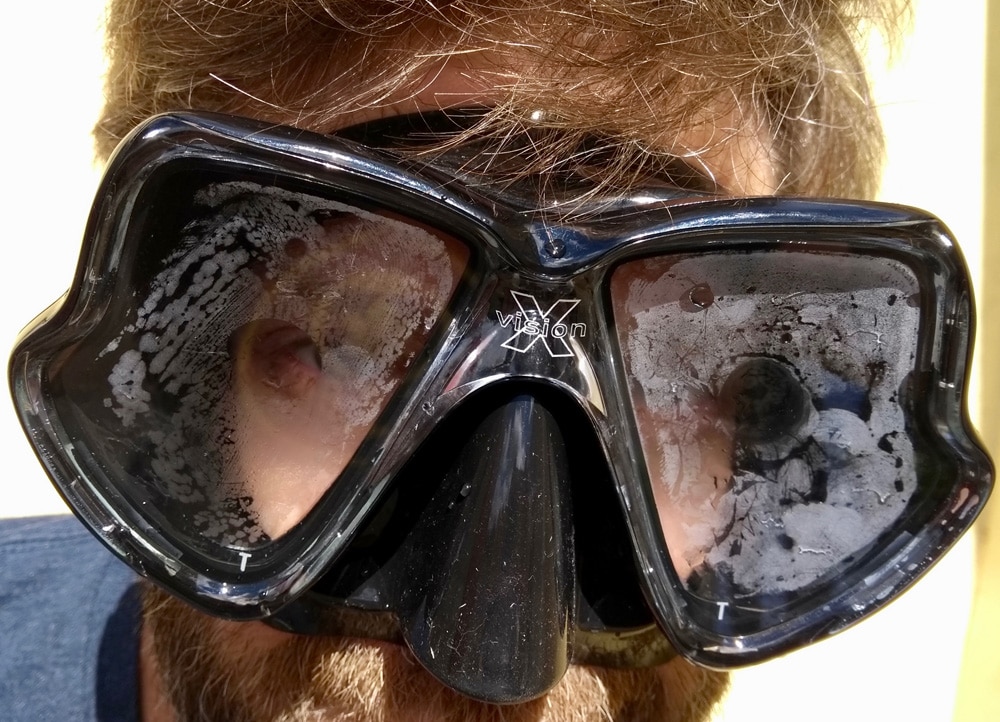
There are a few biodegradable defog options out there for anyone who’s spit is not very effective at keeping their mask fog free, but for the majority of people spit works really well! It’s free, it doesn’t need time to break down to do no harm to the environment and you always have it with you!
9. Get involved in reef surveys or clean-ups
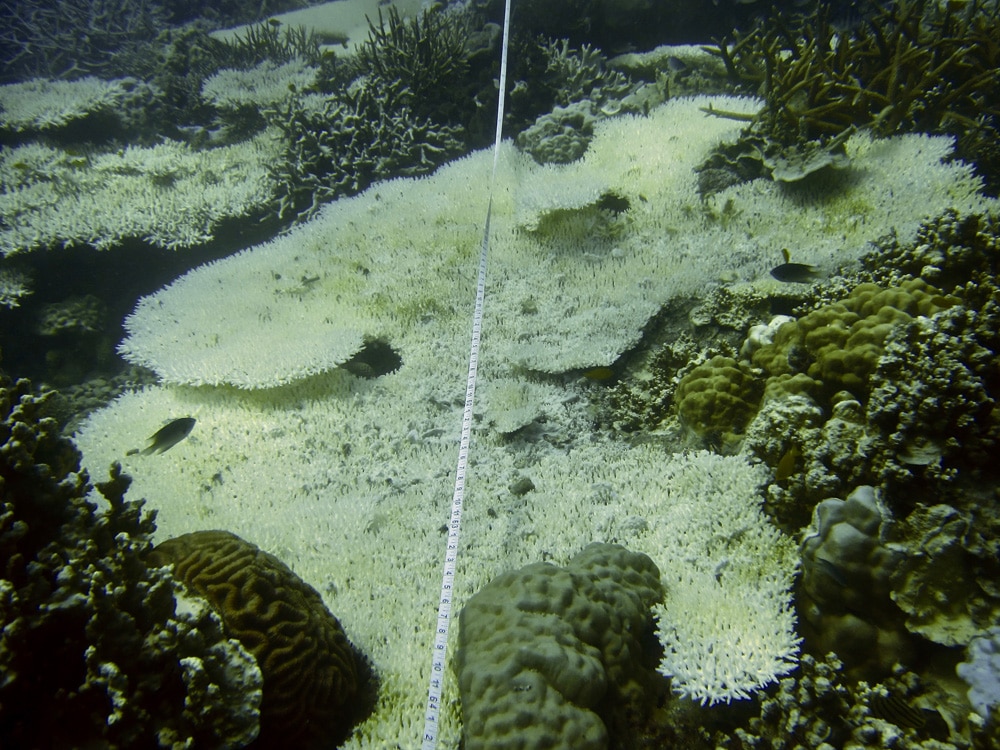
One of the absolute best ways to be sure you are having a positive impact is to give up some of your time to help clean up an area. Many dive centres and organisations will very gladly accept your help on a local beach clean or dive clean up. If you know your fish and coral you can also help by taking part in reef surveys, such as Seasearch, REEF, Reef Check or Coral Watch. Many eco dive centres teach these courses if you would like to hone your underwater ID skills and help gather data for science and conservation.
10. Think about your impact on land
Even though many of us wish we could live underwater sometimes, we do spend the majority of time on land and here we can make a huge difference that will help all environments and our oceans. We can reduce our dependence on single – use plastics that may end up in the ocean, by using reusable water bottles, coffee cups, straws and bags made from recyclable plastics or even better, alternatives like bamboo. Also, have a think about where you stay when on dive holidays, does the hotel try to avoid single use plastics? Do they recycle? What happens to the waste water? Again, with a little research good, affordable eco options can be found for accommodation. It’s always good to know you won’t be diving in water that your waste is going into!
11. Support initiatives to clean up the oceans
There are many great organisations out there attempting to make a difference. We can join charities like Marine Conservation Society, or buy products from clean up programmes. Fourth Element have a new swimwear range made from ghost netting and there are some very good looking flip flops made from recycled ocean plastics. New things are coming on the market all the time, they look good and are a great example of reusing and recycling. Have a search for what is going on near you and how you can support the movement.
12. Try not to eat the seafood you have just been diving with! (The invasive Caribbean lionfish aside).
If you were wondering why there weren’t as many fish as the last time you dived here, and you then go and order a reef fish for lunch at the hotel…you may have found your answer! For a guide on what is sustainable on most menu’s and what to avoid click here. For recipes for cooking the delicious and invasive Caribbean Lionfish, click here!
Blogs
Master Your GoPro: Join an Underwater Video Workshop in the Cayman Islands with Carlos Villoch

Capture Your Best Dive Moments in April 2025 at Ocean Frontiers
For the first time, Ocean Frontiers presents an exclusive underwater video workshop series, hosted by renowned videographer Carlos Villoch at the award-winning Compass Point Dive Resort, Grand Cayman. Designed for GoPro enthusiasts, this workshop is your chance to master your camera and capture documentary-quality footage beneath the waves.

Why Join?
Expert Training: Carlos Villoch, a BBC-Shell Wildlife Photographer of the Year and underwater videography expert, will teach everything from GoPro basics to advanced techniques.
Unparalleled Access: Dive with a dedicated boat, curated dive sites, and expert guidance to help you shoot action-packed, frame-worthy footage.
Custom Gear: Try out Carlos’ unique ‘Glowdive’ accessories, specifically designed for GoPro filming, and take advantage of GoPro features developed with Carlos’ input.
World-Class Diving: Enjoy 15 dives, including reef, wall, wreck, and macro dives, as well as snorkel trips to Stingray City Sandbar.

2025 Workshop Dates
Dive and Learn Itinerary Highlights

Stay at Compass Point Dive Resort

Rates
Dive & Stay Packages (7 nights):
1-bed condo, double diver: US$2,995 per person
2-bed condo, double diver: US$3,395 per person
2-bed condo, quad diver: US$2,570 per person
Add-ons:
Unlimited Nitrox: US$99
Little Cayman Bloody Bay Wall Expedition (3-tank): US$325 (weather permitting)
Diving Only Package:
Workshop & dives: US$1,695 per person

Book Now!
Email: reservations@oceanfrontiers.com
USA Toll-Free: 1-800-348-6096
Cayman Direct: 1-345-640-0000
-

 Gear Reviews4 weeks ago
Gear Reviews4 weeks agoGear Review: SurfEars 4
-

 Blogs3 months ago
Blogs3 months agoScubaverse Christmas Gift Guide 2024: Day 4
-

 News3 months ago
News3 months agoSanta Divers take the Plunge for Charity
-

 Blogs3 months ago
Blogs3 months agoScubaverse Christmas Gift Guide 2024: Day 1
-

 Blogs3 months ago
Blogs3 months agoScubaverse Christmas Gift Guide 2024: Day 5
-

 Blogs3 months ago
Blogs3 months agoScubaverse Christmas Gift Guide 2024: Day 2
-

 Marine Life & Conservation2 months ago
Marine Life & Conservation2 months agoPaul Watson Released as Denmark Blocks Japan’s Extradition Bid
-

 Blogs3 months ago
Blogs3 months agoScubaverse Christmas Gift Guide 2024: Day 3
















